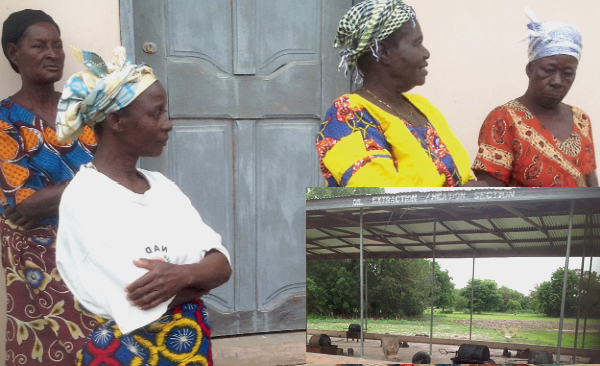
Workers lose livelihood due to collapse of Nakolo factory
The collapse of a shea butter processing and soap-making factory established in 2009 at Nakolo in the Kassena Nankana West District of the Upper East Region has economically affected the workers, including 140 women who were engaged in activities at the various stages of production at the factory.
The inability of the factory to continue to produce has been largely attributed to internal management challenges that made the factory stop production in 2014.
Since that time, the women have not been paid their salaries to enable them to provide for their families.
Operations
The factory was being jointly operated by the former Ghana Youth Employment and Entrepreneurial Agency (GYEEDA) and a private entity known as the New Vision Consult Limited.
GYEEDA was responsible for the provision of funds to run the factory, while the private entity also provided management staff to operate the facility.
The women who were supposed to pick and supply the shea nuts, the major raw materials needed to feed the factory, also stopped picking the nuts from 2013, as they were not paid for their services, although the factory is sited within a shea nut plantation.
As a result of the problem, the newly created Youth Employment Agency (YEA), which was established under the Youth Employment Act 2015 (Act 887) to empower young people to contribute meaningfully to the socio-economic and sustainable development of the nation, is considering putting in place the necessary measures to help revamp the factory.
Disappointments
Two of the affected women, Madam Alogowuno Weboe and Madam Kwopori Pendugase, who narrated their experiences to the media at Nakolo, expressed their disappointment with the situation and stated that when they worked for the factory between 2009 and 2011, they were paid for work done, but indicated that management failed to pay them after 2011, when the managerial issues became complicated and that affected them.
They pointed out that they became so demoralised that they could no longer work anymore. They added: "We no longer have hope because we were thinking that our children would also benefit from this factory after they have finished pursuing their secondary or tertiary education, but as we speak now we cannot provide for the needs of our children, let alone pay their school fees."
A teacher and an opinion leader at Nakolo, Mr Felix Apuri, said if nothing was done to immediately revive the factory, it would eventually affect mostly women and the youth in the area, as some of them had decided to travel out of the town to seek greener pastures elsewhere.
Way forward
The Kassena Nankana West District Director of the YEA, Mr Eric Adolinama, said there was the need to engage the services of a pragmatic management to help revive the factory, since getting raw materials to feed the factory was not a major issue.
During a familiarisation tour of the factory, the Deputy Chief Executive Officer in charge of operations of the YEA, Mr Luke Atazona, indicated that the opening of the factory was a positive step in the fight against poverty among women and children in the area, as well as in dealing with gender discrimination.
"We would see how we can take stock of what needs to be done to put the facility back into shape and support our women; this is a cottage industry that must be supported and we at YEA are looking for an opportunity such as this to transform the lives of women and the youth through industrialisation," he stated.

 Click the link to read your copy.
Click the link to read your copy.